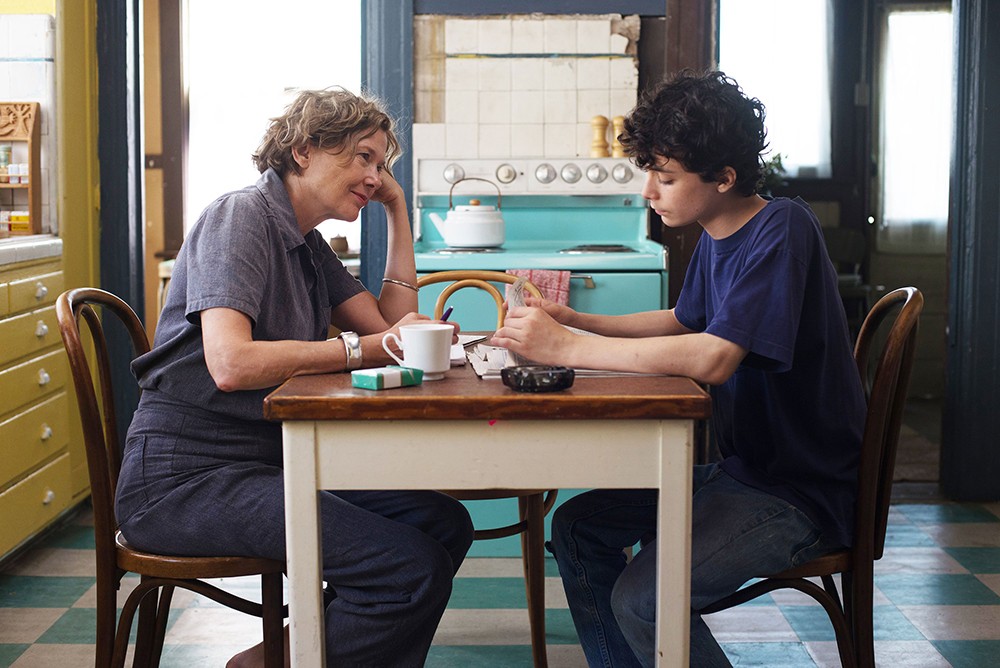20th Century Women
20th Century Women, 2016, 2 stars
Of gender and generation
20th Century Women examines changing roles of men and women
From The Orlando Weekly, January 18, 2017
How often have you left a movie saying to yourself, “The book was better”?
Well, as much as I discourage comparing a novel to a film, that’s the reaction I had after screening 20th Century Women, the new inter-generational dramedy by writer-director Mike Mills. The only problem is the movie isn’t based on a book. Instead, it accomplishes all its compositional and structural screw-ups by itself.
The story, or at least the premise, is mildly intriguing and genuine. After all, Mills based it on his own childhood. It’s Southern California in the late 1970s, and 55-year-old Dorothea (Annette Bening), who more closely identifies with the World War II generation, believes in the Depression-era motto that everyone raises everyone. She lives in a large house with her teenage son, Jamie (Lucas Jade Zumann). With no husband, Dorothea worries about her son’s lack of a father figure. Sure, there’s the hot handyman, William (Billy Crudup), who befriends them, but that’s simply not enough.
For help, she turns to Jamie’s slightly older friend, Julie (Elle Fanning), and 20-something Abbie (Greta Gerwig), who rents a room from them. Meanwhile, Julie is wrestling with her own growing pains while Abbie has more serious adult problems to solve. Even the house is in disrepair, both metaphorically and literally, with old wood being ripped out to make way for new. It reminds one of a slightly grittier Wes Anderson film, just with fewer hypnotic tracking shots, more mundane art direction and less humor.
The characters and performances are mildly interesting, and the ideas weighty, but with no cohesive structure and not enough consequential dialogue, the film limps along with little forward momentum. It’s further damaged by pretentious chapter headings that – in addition to its themes of love, sex, generational differences and gender roles – make this project better suited to literature, unless one were to dig up Ingmar Bergman to direct. And in the end – which feels like it will never come, thanks to poor pacing – I just don’t know why I’m supposed to care about these people. Sure, the actors are competent, but most of them have done better work recently (Bening in Rules Don’t Apply, Gerwig in Maggie’s Plan, Fanning in The Neon Demon and Crudup in Jackie) and will do better work again soon.
20th Century Women is at its best and most poetic when it examines the non-linear nature of time. Particularly memorable are its Casablanca references and suggestions that, in a cultural sense, the past is constantly bumping up against the future, and vice versa. Indeed, the movie briefly manages to become more than the sum of its unimpressive parts when it adopts an almost deconstructionist format and allows Dorothea to gaze psychically into her and her son’s future. But these meta-theatrical, even metaphysical, moments cannot make up for the tedium and boredom of a tale that, when stripped to its core, is a rather poorly directed and edited movie about a mother struggling to raise her son in a world she doesn’t quite understand or embrace.
© 2017 Orlando Weekly / MeierMovies, LLC
